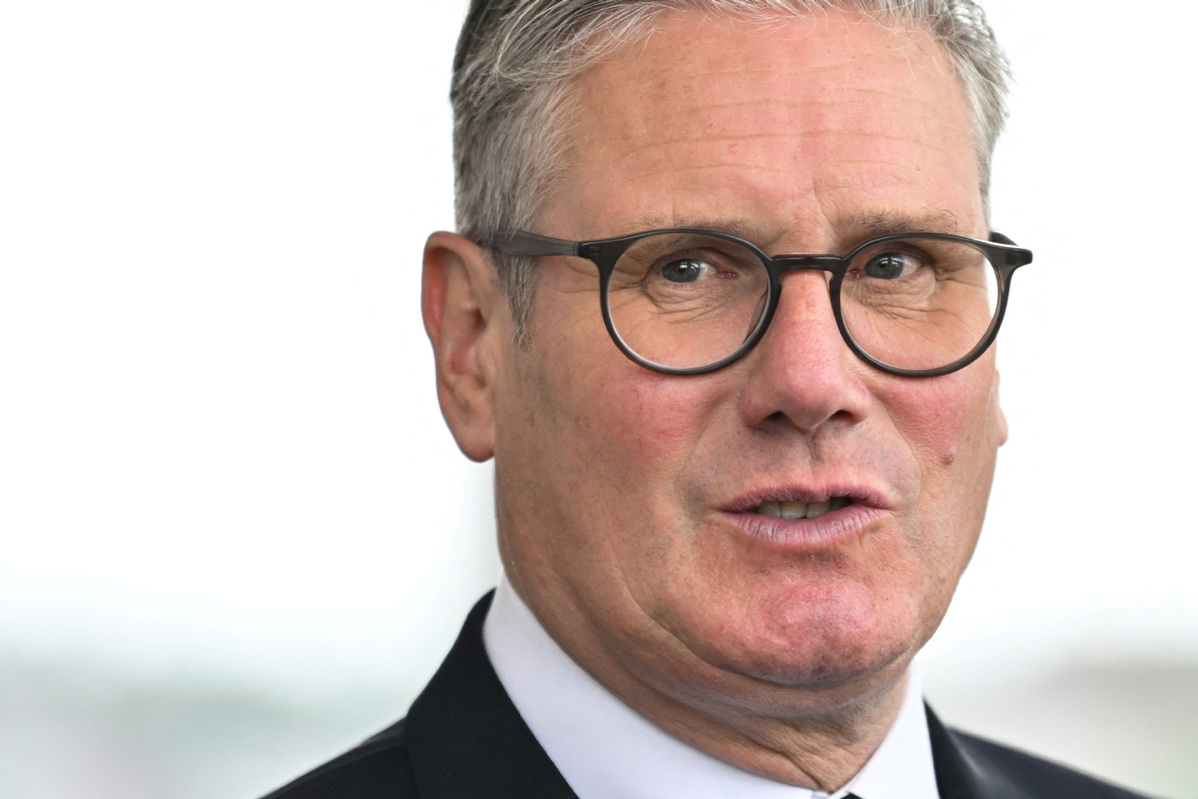PM wants defenses on 'war readiness'


United Kingdom Prime Minister Keir Starmer has said he wants the nation's armed forces to "move to war-fighting readiness" and that "every part of society, every citizen of this country has a role to play" in the future defense of the country "because we have to recognize that things have changed".
In a speech given in the Scottish city of Glasgow, ahead of a vital parliamentary by-election taking place in Scotland later this week, Starmer trailed the government's upcoming Strategic Defence Review by saying the country now faces a security threat "more serious, more immediate, and more unpredictable than at any time since the Cold War".
Calling for a "unity of purpose" and the "mobilization of the nation in a common cause", he said "nothing works unless we all work together".
He highlighted the danger of cyberattacks and the continued conflict in Ukraine as factors that merit a bulking-up of defense capabilities, and closer integrated cooperation with allies.
Concrete steps mentioned in his speech included creating thousands of jobs in at least six new munitions factories, up to 12 new attack submarines with a new one being delivered every 18 months, and a long-term financial commitment to the UK's nuclear deterrent capabilities.
"The moment has arrived to transform how we defend ourselves, and to renew our nation," he said.
When asked by a reporter if he could guarantee his spending promises will definitely be delivered, Starmer said: "Yes, I can … I am 100 percent confident this (the highest sustained increase in defense spending since the Cold War) can be delivered."
But he declined to put a date on when the UK will meet the requirement for members of the NATO military alliance to spend 3 percent of their GDP on defense, instead saying "we are committed to spending what we need to deliver this review … everything that can be done will be done within the spending envelope that we have", and "I am not going to put arbitrary dates on that (3 percent target)".
Previously, the government had expressed an ambition, but not made a firm commitment, to reaching the 3 percent milestone in the life of the parliament after the current one, meaning by 2034.
But Richard Dannatt, a former chief of staff of the British Army, told the BBC it should come in the life of this parliament, which is scheduled to end in 2029, because, if the government believes there is a credible threat on the horizon, action should be taken "rapidly" to prepare for it.
julian@mail.chinadailyuk.com

































